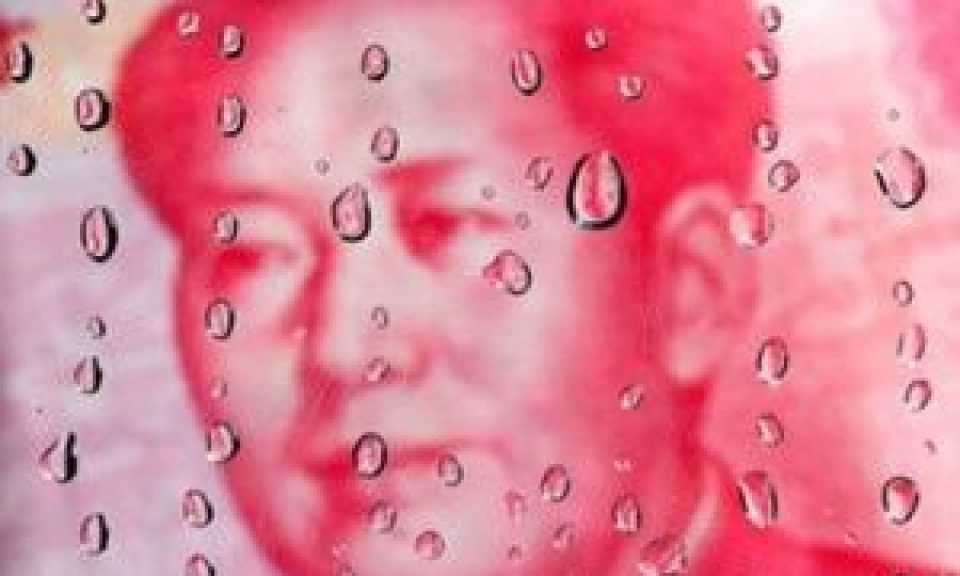Jung Chang calls Chinese history as she sees it
28 January, 2018

Jung Chang, author of the celebrated memoir Wild Swans (1991) recounting the suffering of her grandmother and parents during China’s Cultural Revolution, is two-thirds of her way through a trilogy of modern Chinese history.
After her biographies of Mao Zedong and the Dowager Empress Cixi, both banned in mainland China, her next book will cover what happened in China between those two regimes.
Mao: The Unknown Story (2005) and Empress Dowager Cixi: The Concubine Who Launched Modern China (2013) each go against the grain of popular views. The biography of Mao depicts him as sinister; that of Cixi finds a figure that is progressive and visionary.
Chang was born in Sichuan Province in 1952 to high-ranking Communist officials. Her parents were critical of Mao’s Great Leap Forward and during the Cultural Revolution were persecuted and imprisoned. Chang was nonetheless allowed to study abroad, arriving in Britain on a government scholarship in 1978.
In 1982, she received her PhD in linguistics from the University of York, becoming the first person from the People’s Republic of China to be awarded a doctorate from a British university. Chang still lives in England.
At the recent Ubud Writers & Readers Festival in Bali, Indonesia, Chang recounted how the trilogy took shape. In the course of writing Wild Swans, she became curious about Mao as the figure behind the suffering of her family. “I didn’t set out to challenge the myth of Mao. I just wanted to know who he was.”
“We started by dividing our research by language. I dealt with the Chinese-language sources, and Jon unfortunately speaks many languages, so he was landed with the rest of the world. In particular, he knows Russian.
“He spent years working in the Russian archives, which turned out to be a treasure trove. We were lucky to catch that window of opening in Russia. Yeltsin was in power, and he opened all the archives. And in China, eyewitnesses were still alive. So we had a tremendous 12 years.”
About half way through their research, “We realized what a bombshell we had discovered. Forty million people died of starvation and overwork” under Mao’s rule, Chang says. “Mao’s ambition was to make China a military superpower so he could dominate the world.
“To fulfill his dream, Mao bought nuclear technology, missiles, and top-range military industries from the Soviet Union and some from Eastern Europe. And what did he have to pay for these expensive purchases? Food.” Chang contends those deals led to millions of deaths.
While Mao remains revered in China — “his portrait is still on Tiananmen [Square], his corpse is still lying in the center of the capital for people to worship” — the Dowager Empress Cixi is seen in China’s popular imagination, shaped by Communist Party propagandists, as despotic, cruel and reactionary.
It is known that, on her deathbed, she had the Guangxu Emperor Zaitian, her adopted son, poisoned.
Yet, Chang says, “Everything modern in China today was introduced by Cixi — electricity, the railway, telegraph, radio, film, a modern army and navy, a modern educational system, all introduced by her. And she did this for us: she banned foot-binding. This is how I became interested in her. Growing up in Mao’s China, I thought foot-binding was banned by the Communist Party. But it was this woman.”
Cixi’s reforms included importing food to feed the population. Under Mao, Chang says, “The import of food from Cixi’s time was stopped, and China began to export huge quantities of food. Mao said that for all his projects to take off, half of China may well have to die.
“Before I did research, I didn’t know that was the reason for the great Chinese famine between 1958 and 1961, in which tens of millions of people starved to death. I had thought Mao was no good at running the economy, but it was more sinister: he knew his people would die, but he was still exporting food.”
Since the 2006 publication in Hong Kong of the Chinese edition of the Mao biography, translated by Chang herself, she has been banned from mainland China, except for two weeks a year to visit her elderly mother.
“Up to then and all through the 1990s, I was free (to visit).” Applying for permission to visit each year is a lengthy process. “They told me that if she were dying, the process would speed up.”
Chang offers a theory on why Cixi has remained reviled by history. “After her death, the strong hand that had held the empire together, with one-third of the world’s population, was suddenly no longer there. So republican agitators — who are the subject of my next book — said that her rule was awful, that China was a mess, and it fell on the revolutionaries to rescue China from her. That was the main motive.”
Expect another contrarian take on history in the final volume of Chang’s trilogy due next year.
TAG(s):
